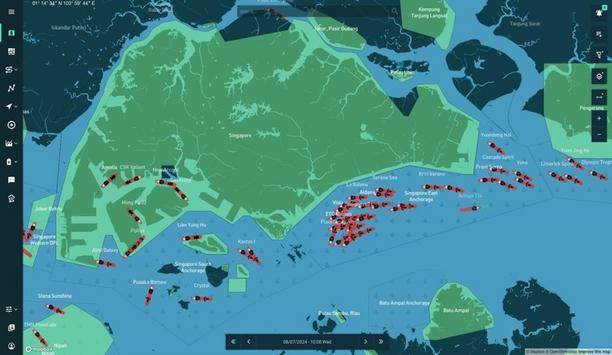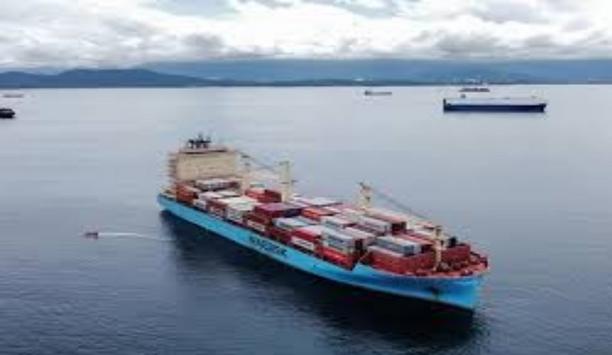Marine technology trade associations in Korea (South)
The Blue Visby Solution is a neutral, independent, and collaborative platform. comprised an algorithm, an operational system, a sharing mechanism, and a contractual architecture. The Blue Visby Solution combines technology with two of the maritime industry’s most remarkable and enduring features: the inter-connectedness of stakeholders through agreements they freely enter into under English law, and long-standing traditions of collaboration.
Founded under the auspices of the International Chamber of Commerce in 1933 as a neutral, non-profit, international organisation, the Bureau International des Containers' (BIC) mission is to enable efficiency in container transportation while promoting safety, security, standardization and sustainability.
The Canadian Coast Guard (CCG) owns and operates the federal government’s civilian fleet, and provides key maritime services to Canadians. As a Special Operating Agency of Fisheries and Oceans Canada (DFO), the CCG helps the DFO meet its responsibility to ensure safe and accessible waterways for Canadians. The CCG also plays a key role in ensuring the sustainable use and development of Canada’s oceans and waterways.
Founded in 1956, China Classification Society (CCS) is headquartered in Beijing and is a full member of the International Association of Classification Societies (IACS). CCS provides classification services to ships, offshore installations and related industrial products by furnishing world-leading technical rules and standards.
CLIA UK & Ireland are leaders and innovators in responsible tourism and offer the best way for travellers to experience the world. They are the leading cruise training body in Europe, delivering award-winning training, seminars and events to the UK and European travel trade.
The CO Research Trust (formerly the Gas Safety Trust) is a registered charity, established in 2005. The objective is to reduce the incidents of death and serious injury from carbon monoxide (CO) poisoning.
The Coast Guard Foundation is committed to ensuring all Coast Guard members and families have the resources they need to build resilience throughout their lives.
Compagnie Maritime Belge (CMB) is a privately owned company, based in Antwerp, Belgium and with offices in Singapore, Hong Kong, Tokyo, Brentwood and Hamburg. At present CMB is active in the marine sector areas of dry bulk shipping — Bocimar, container shipping — Delphis, chemical tankers — Bochem, innovation and development - CMB.TECH, Crew Transfer Vessels (CTWs) - Windcat Workboats, real estate - Reslea and Maritime Campus Antwerp.
Department for Energy Security and Net Zero (DESNZ) is focused on the energy portfolio from the former Department for Business, Energy and Industrial Strategy (BEIS), in the United Kingdom (UK) government.
The European Commodities Exchange is an association grouping 38 national Exchanges from 12 European countries. Its headquarters are at the Strasbourg Commodities Exchange, owing to the city’s central nature and the presence of the European institutions
European Community Shipowners' Associations (ECSA) is the primary institution and public voice of the European shipping industry. The European shipping industry is a success story and a geostrategic asset to the EU in the face of global challenges. European shipowners operate one of the largest, youngest and most innovative fleets in the world.
Evergreen Line is the unified common trade name for the four shipping companies of the Evergreen Group. The brand 'Evergreen Line' is used for international marketing purposes for Evergreen Marine Corp. (Taiwan) Ltd., Italia Marittima S.p.A., Evergreen Marine (UK) Ltd. and Evergreen Marine (Hong Kong) Ltd. and was established May 1, 2007 in response to the request and expectations of global customers.
The Global Centre for Maritime Decarbonisation (GCMD) was formed on 1 August 2021 with funding from the Maritime and Port Authority of Singapore (MPA), and six founding partners, namely BHP, BW, DNV Foundation, Eastern Pacific Shipping, Ocean Network Express and Sembcorp Marine. Located in Singapore, GCMD was set up as a non-profit organisation to support decarbonisation of the maritime industry to meet or exceed the IMO goals for 2030 and 2050.
IAPMEI is a specialised public agency within the Portuguese Ministry for the Economy, created to provide technical and financial support to enterprises, in particular to SMEs. IAPMEI’s main mission is to actively participate in the design and implementation of integrated strategies for the support of Portuguese corporate activity, with a special focus on SMEs and with a view to modernisation, innovation and international competitivity.
Institute of International Container Lessors (IICL) is the trade association of the marine container leasing and chassis provider industry. IICL container leasing member companies engage in leasing marine cargo containers to ship operators and others on a broad international basis. IICL intermodal chassis provider members are in the business of owning and leasing chassis to motor carriers, ship operators, and cargo owners.
International Association of Dry Cargo Shipowners (INTERCARGO) represents the interests of quality dry cargo shipowners. INTERCARGO provides the forum where dry bulk shipowners, managers and operators are informed about, discuss and share concerns on key topics and regulatory challenges, especially in relation to safety, the environment and operational excellence.
IALA is a non-profit, international technical association. Established in 1957, it enables marine aids to navigation authorities, manufacturers, consultants, and, scientific and training institutes from all parts of the world to exchange and compare their experiences, achievements, and technical and operational policies via participation in IALA Technical Committees.
International Association of Oil & Gas Producers (IOGP) are the global voice of their industry, pioneering excellence in safe, efficient, and sustainable energy supply - an enabling partner for a low carbon future. Their members, integrated energy companies, national oil companies, independent upstream operators, service companies, and industry associations operate around the globe, supplying over 40% of the world’s oil and gas demand.
International Chamber of Shipping (ICS) is the principal international trade association for the shipping industry, representing shipowners and operators in all sectors and trades. ICS membership comprises national shipowners' associations in Asia, Europe and the Americas whose member shipping companies operate over 80% of the world's merchant tonnage.
The International Hydrographic Organization works to ensure that all the world's seas, oceans and navigable waters are surveyed and charted, thereby supporting safety of navigation and the protection of the marine environment. It coordinates the activities of national hydrographic offices and sets standards in order to promote uniformity in nautical charts and documents.
International Maritime Bureau (IMB) is a non-profit making organisation, established in 1981 to act as a focal point in the fight against all types of maritime crime and malpractice. IMB’s main task is to protect the integrity of international trade by seeking out fraud and malpractice. For over 25 years, it has used industry knowledge, experience and access to a large number of well-placed contacts around the world to do this: identifying and in
International Seabed Authority (ISA) is an autonomous international organization established under the 1982 United Nations Convention on the Law of the Sea (UNCLOS) and the 1994 Agreement relating to the Implementation of Part XI of the United Nations Convention on the Law of the Sea (1994 Agreement).
The International Seafarers' Welfare and Assistance Network exists to improve the lives of seafarers and their families with services, resources, strategies and advocacy. ISWAN is a membership organisation with the International Chamber of Shipping, The International Transport Workers Federation and the International Christian Maritime Association as the core members.
Together with about 100 group companies in Japan and overseas, Kawasaki Heavy Industries oversees the formation of a 'technology corporate group'. Their technological capabilities, polished over a history that exceeds a century, send diverse products forth into wide-ranging fields that go beyond land, sea, and air, extending from the ocean depths to space.
The Korea Coast Guard is a South Korean law enforcement sub-agency responsible for maritime safety and control off the coast. The KCG is an independent and external branch of Ministry of Maritime Affairs and Fisheries.
KRISO (Korea Research Institute of Ships & Ocean Engineering), established in 1973, is a government-funded research institute in the Republic of Korea and the provider of technology development in ships and ocean engineering.
The Korean Register is a not-for-profit classification society founded in South Korea offering verification and certification services for ships and marine structures in terms of design, construction, and maintenance.
The Marine Environment Protection Committee (MEPC) addresses environmental issues, under International Maritime Organization's remit. Their resolutions are published in the final report of the MEPC meeting, during which they were adopted.
Maritime Anti-Corruption Network (MACN) is a global business network working towards the vision of a maritime industry free of corruption that enables fair trade to the benefit of society at large. Established in 2011, MACN is comprised of vessel owning companies within the main sectors of the maritime industry and other companies in the maritime industry including cargo owners and service providers.
Maritime London is the promotional body for UK-based companies providing maritime professional services to the international shipping industry. Funded by well over 130 companies and organisations from a wide range of disciplines, Maritime London ensures that the UK remains a world-beating location to base a maritime-related business and to conduct maritime trade.











